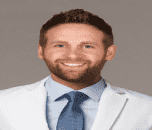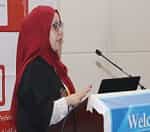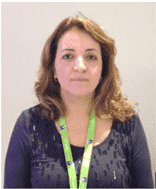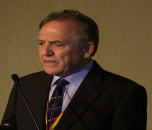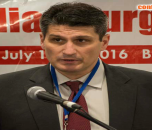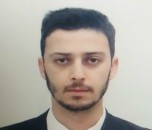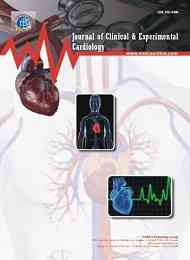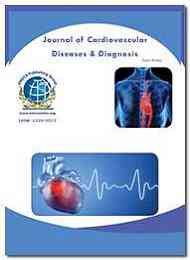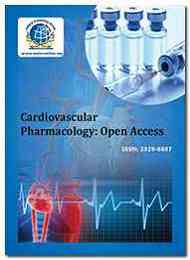
Cardiology Conferences 2018,Cardio 2018, Cardiology Congress 2018, Top CME Meetings, Cardiology Events, Cardiac Nursing Symposiums, Cardiovascular CME Meetings, cardiologist Conferences 2018,Global Cardiology Summit,International Cardiology Conferences. Cardio 2018,Cardiology Experts, Best Cardiologists, Vascular Medicine Specialists And Other Health Care Professionals from Asia Pacific, Europe, USA (America), Middle East, at Cardiology Conferences, CME Conferences, Cardiologists Meetings, Cardiology and Cardiovascular Medicine Congress happening from November 12-13, 2018 at Sydney, Australia. 26th International Conference & Exhibition on Cardiology and Cardiovascular Medicine | November 12-13, 2018 | Sydney, Australia | Theme: Fostering the Future Excellence in Cardiology and Medicine. Cardio 2018 | Cardiology Conferences | Cardiac Nursing Events | Cardiology Care Meetings | Heart Congress | USA | UK | Europe | Middle East | Asia Pacific | 2018.Cardiologists, Anesthesiologists, Research Scholars, Nurse Practitioners, Electrophysiologists, Cardiology Physicians, Business Entrepreneurs, Cardiovascular Doctors, Cardiothoracic Surgeons, Healthcare Professionals, Cardiovascular Scientists, Cardiovascular Researchers, Medical Students and Ph.D. Fellows, Cardiology Faculties and Professors, Various Societies and Their Members, Pharmaceutical and Medical Devices Companies, Cardiology Hospitals, Associations, and Societies CONFERENCE HIGHLIGHTS: Heart Failure, Heart & Brain, Echocardiography, Vascular Biology, Cardiomyopathies, Cardiac Arrhythmias, Cardiac Anesthesiology, Cardiovascular Nursing, Cardiovascular Diseases, Congenital Heart Diseases, Cardiovascular Engineering, Cardiac Problems in Pregnancy, Hypertension & Sports Cardiology, Pediatric and Neonatal Cardiology, Cardiovascular Surgery & Healthcare, Clinical Case Reports on Cardiology, Invasive and Interventional Cardiology, Cardiovascular Pharmacology and Pharmacotherapy, Stem Cell Research and Regeneration on Cardiology, Cardio-metabolic Health- Diabetes, Obesity, & Metabolism
Cardiology Conferences | Cardio 2018
Theme: Fostering the Future Excellence in Cardiology and Medicine
Cardio 2018
Conference Series LLC Ltd is esteemed to invite you to join the 26th International Conference & Exhibition on Cardiology and Cardiovascular Medicine which will be held from August 09-10,2018 Manila, Philippines which includes prompt Keynote Presentations, Oral Talks, Poster Presentations And Exhibitions.
Summary: Cardio 2018 (Conference) Is To Meet Top & Best Cardiologists, Doctors, Cardiology Experts, Cardiac Surgeons, Vascular Medicine Specialists, Physicians, Health Care Professionals At Cardiology, Atherosclerosis, Clinical Cardiology Arrhythmia, Cardiac Surgery, Echocardiography, Cardiovascular Medicine, Arrhythmia, Cardiac Surgery Conferences, Events, Annual Meetings , Program From Clinics, Hospitals From Asia, Americas, Europe, USA, Middle East. Cardio 2018 has been designed in an interdisciplinary manner with a multitude of tracks to choose from every segment and provides you with a unique opportunity to meet up with peers from both industry and academia and establish a scientific network between them. We cordially invite all concerned people to come join us at our event and make it successful by your participation.
A comprehensive range of topics will be discussed in the event including maternal Clinical Cardiology, Cardiac Pharmacology, Cardiac Regeneration & Remodeling, Heart Stroke, Cardio Metabolic Health, Cardio-Oncology, Cardiovascular Epidemiology, Cardiovascular Nursing, Cardiovascular Radiology And Intervention, Cardiac Imaging & Anesthesia, Critical Care Cardiology, Heart Failure And Cardiomyopathies, Pediatric Cardiology, Cardiac Arrhythmia, Cardiac Diseases, Cardiac Surgery. It is our ideology to bring maximum exposure to our attendees, so we make sure the event is a blend which covers professionals such as Cardiologist, Nurses, Researchers, Women Healthcare Professionals from Academia & Industry Making the Conference a Perfect Platform.
Related: Cardiology Conferences | Cardio 2018 Meetings | Conference Series | CME Conferences | Cardiology Events 2018 | Annual Cardiologists Conferences | Cardiac Society Congress | Heart Congress :
Key Figures of Cardio 2018
This international Conference provides the opportunity for clinicians, scientists, doctors and researchers from all over the world to gather and learn the latest advances in the field of cardiology and healthcare and to exchange scientific ideas and experiences in a distinctive environment.
- 2 days of scientific exchange
- 200+ abstracts submitted
- 30+ scientific sessions
- 80+ international expert faculty members
- 100+ healthcare professionals
Cardio 2018 is the international Conference conducted with the support of the Organizing Committee Members and members of the Editorial Board of the supporting cardiology related journals and is aimed at helping support healthcare professionals i.e. cardiologists, surgeons, Per-fusionists to deliver the best care possible to patients with cardiovascular diseases.
Cardiology & Medical Conference provides a Global Platform for Global Networking and Exchanging Latest Innovations in Cardiology, Nursing and Healthcare. Offering opportunity to attend the Presentations delivered by eminent experts from all over the world. Participating in Cardiology Conferences gives a way to Meet, Interact With, And Make Contacts with other Experts in Your Specialty Area. Most Conferences will have Authors, Researchers, Clinicians who Are Recognized Experts In The Field.
Our Goals:
- Spread knowledge about the cardiovascular system and its diseases.
- Promote research on the causes and treatment of diseases of the cardiac system
- To improve and expand heart failure care through worldwide Cardiology Conferences, collaboration, education, and research.
Target audience:
- Cardiologists
- Anesthesiologists
- Research Scholars
- Nurse Practitioners
- Electrophysiologists
- Cardiology Physicians
- Business Entrepreneurs
- Cardiovascular Doctors
- Cardiothoracic Surgeons
- Healthcare Professionals
- Cardiovascular Scientists
- Cardiovascular Researchers
- Medical Students and Ph.D. Fellows
- Cardiology Faculties and Professors
- Various Societies And Their Members
- Pharmaceutical and Medical Devices Companies
- Cardiology Hospitals, Associations, and Societies
Related Cardio 2019 | Cardiology Conferences | Medical Meetings | Heart Symposium | Global Summit | Conference Series Ltd | Heart Conferences | Cardiac Events 2019:
Track 1: Heart Failure: Heart failure is a condition in which your heart can't pump enough blood to meet your body's needs. The term “heart failure” doesn't mean that your heart or is about to stop working or has stopped. However, heart failure is that serious condition which requires medical care. If you have heart failure, you may tire easily and have to limit your activities. CHD can lead to heart failure by weakening the heart muscle over time.
Track 2: Heart & Brain: The heart is one of the most significant organs in the human body, because it is one of the leading ways for connecting us to each other and the Life. Major role of the heart is to pump blood to all the systems of the body. The brain is one of the greatest complex and superlative organs in the human body. The heart-brain connection is dominant, with each strongly reliant on the other.
Track 3: Echocardiography: Electrocardiography (ECG) is the method of recording of the electrical activity of the heart over a time period using electrodes placed on the skin. These electrodes help in the detection of the minute electrical changes on the skin that arise from the electro-physiologic pattern of heart muscle while depolarizing during each heartbeat. This record called the electrocardiogram (also known as an ECG), gives information about the part of the heart that triggers each heartbeat (the pacemaker called the sino-atrial node), the nerve conduction pathways of the heart, and the heart rate and rhythm. Usually, an ECG is obtained if a heart disorder is suspected.
Track 4: Vascular Biology: Vascular biology is the study that involves vascular function, structure, growth & development. This field includes different research, including studies of molecules, cells, organs and intact organisms. The goals of vascular biology theory is to improve blood flow and perfusion of organs via the identification of new therapeutic targets, development of novel treatment approaches and tissue engineering of synthetic blood vessels and organs. Vascular biology research can lead to the prevention of the diseases that are the leading causes of death in Western cultures, including heart attack and stroke. This research is very costly to perform but can lead to significant improvement in lifespan and quality of life.
Track 5: Cardiomyopathies: Cardiomyopathy is a condition where the heart muscle is not normal. Dilated, Hypertrophic and Restrictive cardiomyopathy are the main types of cardiomyopathies. This condition makes it harder for the heart to pump and deliver blood to the rest of the body. Coronary heart disease can lead to heart failure by weakening the heart muscle over time. The term heart failure doesn't mean that the heart has stopped or is about to stop working. It is a serious condition that requires medical care. Cardiomyopathy is described as a group of diseases that affect the heart muscle.
Track 6: Cardiac Arrhythmias: It also called cardiac dysrhythmia or irregular heartbeat. It is a condition in which the heartbeat is irregular, too fast, or too slow. It includes extra beats, supraventricular tachycardia, ventricular arrhythmias, and Brady arrhythmias. Many types of arrhythmia have no symptoms. When symptoms are present these may include palpitations or feeling a pause between heartbeats. More seriously there may be light headedness, passing out, shortness of breath, or chest pain, some predispose a person to complications such as stroke or heart failure. Others may result in cardiac arrest.
Track 7: Cardiac Anesthesiology: Cardiothoracic anesthesiology is a subspecialty of the medical practice of anesthesiology devoted to the preoperative, intraoperative, and postoperative care of adult patients undergoing cardiothoracic surgeryand related invasive procedures. It deals with the anesthesia aspects of care related to surgical cases of the human chest. These aspects include perioperative care with expert manipulation of patient cardiopulmonary physiology through precise and advanced application of pharmacology, resuscitative techniques, critical care medicine, and invasive procedures.
Track 8: Cardiovascular Nursing: Cardiovascular nursing is a nursing specialty that works with patients suffering from various cardiovascular conditions. Heart nurses help treat conditions such as unstable angina, cardiomyopathy, coronary artery disease, congestive heart failure, myocardial infarction, and cardiac dysrhythmia under the guidance of a cardiologist. Heart nurses perform postoperative surgical care, stress testing, cardiac monitoring, blood vessel monitoring, and health evaluation.
Track 9: Cardiovascular Diseases: Heart disease describes the conditions that affect your heart. Diseases under the heart disease umbrella include blood vessel diseases, such as coronary artery disease; heart rhythm problems (arrhythmias); and heart defects you're born with i.e. congenital heart defects, Rheumatic heart disease, Hypertensive heart disease, Ischemic heart disease, Hypertension and many more.
Track 10: Congenital Heart Diseases: The term “Heart disease” constitutes a number of problems, most of which are in relation to a process called atherosclerosis. Atherosclerosis is a condition that occurs when a substance called plaque builds up in the arteries’ walls. This build-up reduces the width of the arteries, making it difficult for blood to flow through. If a blood clot occurs, it can cease the blood flow. This can result in a heart attack or stroke. Some heart defects also exist in individuals due to birth defects.
Track 11: Cardiovascular Engineering: Cardiovascular Engineering stimulates innovative methods and technological advancements in the basic understanding of the cardiovascular system and in cardiovascular diagnosis and treatment applications. Original Contributions outline new concepts and applications in cardiovascular mechanics, cardiology applications and diagnostic methods, cardiac and vascular imaging, devices and instrumentation, hemodynamic monitoring and measurements, cardiac assistance, vascular grafts and artificial hearts, cardiac electrophysiology techniques, computer modeling and drug delivery systems.
Track 12: Cardiac Problems in Pregnancy: The evaluation of individuals with valvular heart disease who are or wish to become pregnant is a problematic issue. Issues that have to be addressed include the risks in pregnancy to the mother and the increasing fetus by the presence of maternal valvular heart disease as an intercurrent disease in pregnancy.
Related Conferences: 23rd European Heart Failure Congress, February 19-21, 2018 Paris, France, 3rd World Heart Congress, April 19-20, 2018, Amsterdam, Netherlands, 3rd Cardiovascular Conferences, July 05-06, 2018, Berlin, Germany, 26th Cardiology Case Reports Conferences, July 05-06, 2018, Berlin, Germany, Clinical Cardiology Conferences, May 24-26, 2018 London, UK; PCR London Valves 2017, September 24-26, 2017, ACC Annual Meeting, October 15-18, 2017, 4th International 4 Corners of Cardiology Meeting 2018, February 09-10. 2018, ACC Annual Meeting, March 10-12, 2018, National Cardiology Conferences, USA EHRA Congress 2018, March 18-20, 2018, Barcelona, Spain, Frontiers in Cardiovascular Biology 2018, April 20-22, 2018, Heart Failure 2018, May 26-29, 2018, Euro Heart Care 2018, June 07-09, 4th International Hypertension Conferences 2017, September 10-11, 2018, Zurich, Switzerland.
Track 13: Hypertension & Sports Cardiology: Hypertension, also called high blood pressure is a long term medical condition in which the blood pressure in the arteries is frequently elevated. High blood pressure usually does not cause symptoms. Long term high blood pressure is a main risk factor for coronary artery disease, stroke, heart failure, peripheral vascular disease, vision loss, and chronic kidney disease. It is classified as either primary (essential) high blood pressure or secondary high blood pressure. Sports Cardiology achieves heart screenings that detect potentially serious cardiovascular issues in young athletes. Sudden cardiac arrest (SCA) is the major reason of death in exercising young athletes, and is most commonly set off by problems— as structural heart disorders or electrical circuitry issues—which are not commonly found during routine physical examinations.
Track 14: Pediatric and Neonatal Cardiology: Pediatric Cardiology is for diagnosing congenital heart defects, performing diagnostic procedures such as echocardiograms, cardiac catheterization and electrophysiology studies, and for continual management of the onset of heart disease in infants, children and adolescents. Different types of inflammatory heart disease include myocarditis (the disease is characterized by heart muscle inflammation); Kawasaki's disease is a rare childhood disease that affects blood vessels. Neonatal Cardiology is the fetal diagnosis and treatment given for pregnant women at risk of or known to be carrying babies with heart problems.
Track 15: Cardiovascular Surgery & Healthcare: Coronary artery bypass grafting (CABG) is the most usual type of heart surgery. CABG boosts blood flow to the heart. Surgeons make use of CABG to treat people who have critical coronary heart disease (CHD). For the heart to work well, blood should flow in only one direction.
Track 16: Clinical Case Reports on Cardiology: Cardiology is a branch of medicine dealing with heart disorders. The heart is an important muscle organ in humans and other animals, pumping blood through the blood vessels of the circulatory system. Medicines that are used to treat other disorders in the body have a great effect on the heart and cause various side effects. Therefore, case reports of cardiac arrest and disease are very important and help in the development and development of treatment strategies. Cardiology conferences, cardiac conferences are very important for ordinary people to be aware of the most important part of the human body, the Heart.
Track 17: Invasive and Interventional Cardiology: Interventional cardiology is a chapter of cardiology that deals particularly with the catheter based treatment of structural heart diseases. A huge number of procedures can be acted on the heart by catheterization. This most commonly includes the insertion of a sheath into the femoral artery (but, in practice, any large peripheral artery or vein) and cannulating the heart below X-ray visualization (usually fluoroscopy).
- Cardiac catheterization
- Angioplasty
- Coronary Stents
- Embolic protection
- Percutaneous valve repair
- Balloon valvuloplasty
- Atherectomy
Track 18: Cardiovascular Pharmacology and Pharmacotherapy: Cardiovascular pharmacology deals with the treatment of heart disease. Cardiac medications are used to treat the cardiac, circulatory and vascular system. Various cardiovascular agents are available to treat various cardiovascular conditions. Sodium, Potassium, Calcium channel blockers, ACE inhibitors and cardiac biomarkers. There are 6 associations and societies and the main association for cardiology medical agents in the US. 50 universities work on cardiac medications. Three new drugs were introduced in 2015. There are many types of cardiovascular drugs on the market that include cardiac glycosides, anticoagulants, antiarrhythmic agents, anti-anginal agents and antihypertensive agents.
Track 19: Stem Cell Research and Regeneration on Cardiology: Cardiac Regeneration is an effort to repair irreversibly damaged heart tissue through cutting-edge science, including stem cell and cell-free cell therapy. Reparative tools have been designed to restore damaged heart tissue and function by the natural ability of the body to regenerate. Together, patients and providers find regenerative solutions that renew, renew and recycle patients' own reparative capabilities.
Track 20: Cardio-metabolic Health- Diabetes, Obesity, & Metabolism: Obesity increases the risk of heart disease and stroke. But it damages more than just the heart and blood system. It is also the major cause of bile stones, osteoarthritis and respiratory problems. Obesity closely interferes with many health conditions that underlie cardiovascular disease, including high blood pressure, diabetes and abnormal blood cholesterol. Additionally, weight gain is a frequent consequence of a heart-damaging lifestyle such as lack of exercise and a fat diet.
Annual Congress & Medicare Expo on Primary Healthcare | Cardiology Congress | Cardiology Conference | World Heart Congress | Cardiology Care Conferences | Cardiology Meetings | Cardiologists 2018 | Cardiologists Meet | European Cardiology Congress | ACC Annual Meetings| European Heart Congress | Interventional Cardiology Conferences | Cardiology Conferences | Cardiology Care Congress | Cardiology Nursing Meetings | Healthcare Symposium | Global Summit | Conference Series LLC Ltd | Heart Conferences | Cardiac Events 2018 | Cardiology Congress | Cardiology Conference | World Heart Congress | Cardiology Care Conferences | Cardiology Meetings | Cardiologists 2018 | Cardiologists Meet | European Cardiology Congress | ACC Annual Meetings| European Heart Congress | Interventional Cardiology Conferences| World Heart Congress | International Conference On Cardiology & Cardiac Nursing European | Heart Disease and Heart Failure Congress | Annual Cardiologists Conference | International Conference on Hypertension & HealthcareRelated Socities and Associations :
USA: The American Society for Preventive Cardiology; American Society of Nuclear Cardiology; American Heart Association; ACC; American Stroke Association; Society for Cardiovascular Angiography and Interventions; Arizona Society of Echocardiography; Brazilian Society of Cardiology; Heart Failure Society of America; American College of Cardiology, Georgian Society of Cardiology, Association of Cardiovascular Prevention and Rehabilitation; Elsevier Society Partners in Cardiology; American Society for Preventive Cardiology; American Society of Echocardiography; American Society of Hypertension; Brazilian Society of Hypertension; Canadian Cardiovascular Society; Argentine Society of Cardiology; Canadian Association of Interventional Cardiology ; Congenital Cardiac Anaesthesia Society; The American Association of Cardiovascular and Pulmonary Rehabilitation; Vascular and Endovascular Surgery Society, American College of Cardiology ; Georgian Society of Cardiology; Hellenic Society of Cardiology; Icelandic Society of Cardiology; International Society for Vascular Surgery, Irish Cardiac Society; Kosovo Society of Cardiology ; Lithuanian Society of Cardiology; Luxembourg Society of Cardiology, Maltese Cardiac Society; Moldavian Society of Cardiology, Montenegro Society of Cardiology ; Moroccan Society of Cardiology, Norwegian Society of Cardiology; Polish Cardiac Society; Portuguese Society of Cardiology; San Marino Society of Cardiology; Slovak Society of Cardiology; Slovenian Society of Cardiology; Spanish Heart Foundation; Swedish Society of Cardiology; Swiss Society of Cardiology; World Health Organization, World Heart Federation
Europe & UK: European Society of Cardiology; British Cardiovascular Society; British Association for Cardiovascular Prevention and Rehabilitation; World Heart Failure Society; Austrian Heart Foundation; Austrian Society of Cardiology; Belgian Society of Cardiology; Spanish Society of Cardiology; British Cardiac Society; International Academy of Cardiology; British Heart Foundation; British Hypertension Society; British Junior Cardiologists Association; Croatian Cardiac Society; European Society of Cardiology; British cardiology society; Luxembourg Society of Cardiology; British Heart Failure Society; Association of Cardiologists of Bosnia & Herzegovina; British Heart Foundation; Spanish Heart Foundation; Austrian Heart Foundation; Belorussian Scientific Society of Cardiologists.
Middle-East: Algerian Society of Hypertension, Russian Society of Cardiology, Armenian Cardiologists Association, Saudi Heart Association, Turkish Society of Cardiology, Emirates Cardiac Society, Egyptian Cardiology Society, Iranian Heart Association.
Importance and Scope
Cardiology Conference 2019 aims to discover advances in health practice, management and education in relation to health disparities as well as heart disease describes a range of conditions that affect your heart. Diseases under the heart disease umbrella include blood vessel diseases, such as coronary artery disease; heart rhythm problems (arrhythmias); and heart defects you're born with i.e. congenital heart defects, Rheumatic heart disease, Hypertensive heart disease, Ischemic heart disease, Hypertension and many more. According to the reports, the healthcare services market in the GCC is expected to grow from AED 66 billion (US $18 billion) in 2008 to AED 175-202 billion (US $47-55 billion) by 2020.
According to WHO (World Health Organization) and the CDC, heart disease is the leading cause of death in the UK, USA, Canada and Japan. The number of US adults diagnosed with heart disease stands at 26.6 million (11.3% of adult population), 23.5% of all deaths in the USA today are caused by heart disease. According to the latest WHO data published in May 2017 Coronary Heart Disease Deaths in Japan reached 87,881or 16.86% of total deaths. The age adjusted Death Rate is 161.43 per 100,000 of population ranks Japan 37 in the world.
The current survey on number of persons with cardiovascular and cardiac disease manifestations in the Vietnam says that, although the mortality from cardiovascular disease (CVD) in our country has declined, its disease burden remains high. Council on Cardiovascular Nursing and Allied Professions (CCNAP) main objective is to support nurses and allied health professionals throughout Oceania to deliver the best possible care to patients with cardiovascular disease and their families. Nurses and allied health professionals play a pivotal role in Cardiac care. Interventions developed, tested and implemented by nurses and allied health professionals can assist patients to prevent, adjust to and recover from Cardiac illness. In CCNAP you will find a team of dedicated professionals, eager to support you in the delivery of excellent cardiovascular care. Whether you are working in practice, education or research, they welcome you and encourage you to join they Council. They are committed to your professional development.
Global Market at a Glimpse:
The global interventional Cardiology market is anticipated to grow at a steady rate and will post a CAGR of more than 17% during the forecast period. The growing demand for minimally invasive (MI) procedures will drive the growth prospects for the global interventional Cardiology market in the forthcoming years. As a result, 3D-MRI techniques for improved imaging have increased the popularity of MRI procedures, which will eventually increase the demand for Cardiac surgeries. According to the industry research report, one of the major factors responsible for the growing preference for hybrid procedures is their ability to eradicate plaque entirely from the blood vessels and offer qualitative results to patients.
Fund Allotment to Cardiology Research:
The NIH (National Institute of Health) Funding Opportunity Announcement (FOA), funded by the Patient-Centered Outcomes Research Institute (PCORI), funds up to two new patient-centred comparative effectiveness clinical trials, with the goal of comparing alternative, evidence-based ways to reduce inadequate control of Cardiology and disparities in outcomes among high-risk populations, including racial/ethnic minority groups, patients with low socioeconomic status (SES), and individuals residing in rural geographical areas with an above average lifetime risk of cardiovascular disease (CVD). This initiative is supported by the CardiologyDisparities Reduction Program Partnership (HDRPP), a research partnership between NHLBI, NINDS and PCORI, with funds provided by PCORI to the NIH.
Statistics of Physicians, Researchers and Academicians working on Cardiology:
The estimated statistics of the number of physicians, academicians and researchers working upon the advancement in the treatment and management of Cardiology are as described in the pie chart here in July 26-27, 2019 Kyoto, Japan.
Continue to read at: http://market-analysis.conferenceseries.com/cardiac-nursing-market-reports
References:
- http://www.grandviewresearch.com/industry-analysis/interventional-cardiology-devices-market-analysis
- http://www.meddeviceonline.com/doc/medical-device-coatings-market-is-expected-to-reach-us-b-in-0001
- https://www.zionmarketresearch.com/news/global-medical-device-coatings-market
- http://www.dgnewsnetwork.com/crc.nsf/congresses/17706567864B221185257A410038E53F
Related Associations & Societies
European Society of Cardiology; Italian-Federation-of-Cardiology, Arezzo, Italy; Italian Society of Cardiology, Rome, Italy; Spanish Society of Cardiology, Madrid, Spain; International Council of Nurses; American Heart Association Dallas, USA, North America; American College of Cardiology; Cardiology Society Los Angeles, USA, North America; Japanese Circulation Society, Japan; British Junior Cardiologists Association London, UK; American Medical Association;American Association of Public Health Physicians; Cardiac Society of Australia and New Zealand, Sydney, Australia; World Society of Arrhythmias Beijing, China; Philippine Heart Association Manila, Philippines; Asian Society for Cardiovascular Surgery (ASCVS) Fukuoka, Japan, Asia; The Pan-African Society of Cardiology (PASCAR) Algeria, Africa; Saudi Hypertension Management Society; Taiwan Society of Cardiology, Taipei, Taiwan; Gulf Heart Association, Dubai, United Arab Emirates; American Association of Legal Nurse Consultants, American Association of Managed Care Nurses; Mexican Society of Cardiology, Mexico; Paraguayan Society of Cardiology, Paraguay; Brazilian Society of Cardiology, Brazil; Vietnam Heart Association, Hanoi, Vietnam; Turkish Society of Cardiology, Istanbul, Turkey.
Conference Highlights
- Heart Failure
- Heart & Brain
- Echocardiography
- Vascular Biology
- Cardiomyopathies
- Cardiac Arrhythmias
- Cardiac Anesthesiology
- Cardiovascular Nursing
- Cardiovascular Diseases
- Congenital Heart Diseases
- Cardiovascular Engineering
- Cardiac Problems in Pregnancy
- Hypertension & Sports Cardiology
- Pediatric and Neonatal Cardiology
- Cardiovascular Surgery & Healthcare
- Cardio-metabolic Health- Diabetes, Obesity, & Metabolism
- Clinical Case Reports on Cardiology
- Invasive and Interventional Cardiology
- Cardiovascular Pharmacology and Pharmacotherapy
- Stem Cell Research and Regeneration on Cardiology
To share your views and research, please click here to register for the Conference.
To Collaborate Scientific Professionals around the World
| Conference Date | August 09-10, 2018 | ||
| Sponsors & Exhibitors |
|
||
| Speaker Opportunity Closed | Day 1 | ||
| Poster Opportunity Closed | Click Here to View | ||
Useful Links
Special Issues
All accepted abstracts will be published in respective Our International Journals.
- Journal of Cardiovascular Diseases & Diagnosis
- Journal of Clinical & Experimental Cardiology
- Cardiovascular Pharmacology: Open Access
Abstracts will be provided with Digital Object Identifier by


